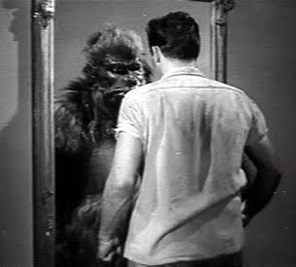Mirrored Standards
By Anthony Casperson
3-21-20
When a storyteller desires to explore the problems of their culture, they will often turn to speculative fiction (like sci-fi and fantasy stories). This affords the author the opportunity to speak to a problem of humanity without having the specifics run into the defenses of their audience.
If a person has excuses (no matter how ridiculous they are in reality) for their behaviors in the situation presented, then the story will sound like browbeating to them. And that’s if they even take the time to finish the story to its completion. Often the moral statement meant by the author will only end up expanding the divide between the various sides of the topic.
However, when the story describes situations that no audience member has really ever experienced, the principle meant by the author is less likely to fall on deaf ears. It gives the audience a lens through which to see the world that’s unlikely to encounter pre-built barriers. The author’s intent sucker punches the audience to take an inward look, questioning how we are part of the problem.
For instance, when racism is couched in a story about aliens, our excuses about how humans with particular skin tones or from a given socioeconomic class always act in certain ways should never come to our minds. The mirror of our own culture’s double standards stealthily moves into our view.
A story about a race of people destroying a forest, which desecrates an elven holy site, can remind us about the problems of relocating an indigenous people. Or tales of scientists creating something that ends up decimating earth’s population can point us to the problems of playing God when humans have such a limited point of view that we could never see everything like he does.
But why do humans have to trick ourselves into viewing our own problems without making up every excuse we can think of?
It’s much easier to see the problems of other people. We don’t want to think about our own deficiencies. And we understand that there can be extenuating circumstances that require a little bit of lenience. But when we look at other people, we don’t have that invested interest to ferret out the circumstances that might show why they’ve done something.
For many humans, the self becomes their standard by which they judge others. Although, if we’re honest, it’s our best that becomes the standard, while our worst is excused away. This is why double standards exist. We see our best, but everybody else’s worst.
In Matthew 7:1-6, Jesus speaks to this idea of a double standard. Many people, even the most atheistic opponent of the bible, can quote some form of Matthew 7:1, “Don’t judge lest you be judged.” It’s used as an excuse for a person to do what they want without having consequences. Thus ending up using Jesus’ words to say exactly the opposite of what he meant.
The very next verse continues by saying that whatever standard by which we judge, we will be judged. The words assume that we’ll use a measure of judgement. However, that same standard should be used for everyone when we’re trying to discern our place in regard to the will of God. It’s not saying don’t judge, but rather that the standard should be the same regardless of the person standing in light of it.
Jesus continues in verses 3-5 with an image that should make everyone of us laugh at the ridiculousness of it…until we realize that the mirror of inner reflection is staring us in the face. He gives us two characters. One has a small speck of dust in their eye. We’ll think of it like a piece of sawdust. The other character has an entire 2x4 sticking out of their eye socket.
The person with the small irritant in their eye tries to remove the microscopic problem. But Mr. 2x4 comes along staring at this other person, “You have a problem there. Lemme help.” You have a beam of wood sticking out of your eye. I think you have bigger problems than trying to help someone else with speck of sawdust. You have more than sawdust in your eye.
Not only does this story show us how utterly absurd double standards can be, but it also teaches us to take care of our own issue first, then help the other person. In relation to judgement, this means that before we go around trying to judge other people, we should stand under that judgement first.
It’s not saying that judgement should never happen. Rather, if we apply the standard to ourselves first, then we can properly help someone else with the same issue. We’ve lived it. We’ve worked through it. (Or we are working through it as well, just a little bit ahead of them.) Our internal look helps us mirror that standard to others.
Though, there is a warning in Jesus’ words about judging. It’s not that we shouldn’t be judges of others, but that some people won’t want to accept the help. This warning is found in verse 6. It says not to give holy things to dogs, or pearls to pigs. The standard of judgement can be perfect. And we might have worked out our own beams of wood from our eyes. But there are some people who won’t ever accept our help to deal with their speck of dust.
Judgement is not meant to be a blunt weapon. We shouldn’t keep beating people with it until they accept it. We can offer ourselves as mirrors to aid in the removal of the less-than-holy, but if the person we’re trying to help doesn’t see the priceless nature of the helping hand, then there’s not much we can do.
It’s like trying to get a piece of sawdust out of the eye of a person struggling away from our help. If we try to get it out anyway, we’ll likely end up damaging more than helping. Hopefully, when the irritant becomes a big enough problem, they might come back for help. But until then the best thing we can do is stop trying to help.
The inward look at our problems is difficult for most people. So, every time we wish to uphold a standard, let’s look first at our own place in regard to the issue before we try to help others. And if others show themselves to not want help, let’s not force holiness on them.
If we don’t do both, we’ll end up forcing a double standard on everyone.




